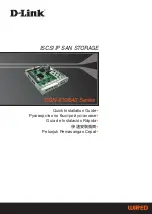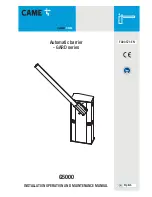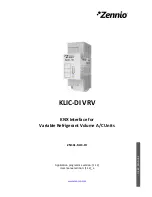
Connecting
6.1 Instructions for EMC-compliant drive installation
SINAMICS DCM DC Converter
Operating Instructions, 12/2018, A5E34763375A
97
10 Shields for analog signal cables may be connected to ground at both ends if equi-
potential bonding is good (this must be done over a large area with good conductivity). It
can be assumed that equipotential bonding is good if all metal parts are well
interconnected and the electronics components are supplied from a single source.
Connecting a shield at one end prevents low-frequency, capacitive interference from
being coupled in (e.g. 50 Hz hum). In this case, the shield should be connected in the
control cabinet; a sheath wire may also be used for this purpose.
The cable to the temperature sensor on the motor (X177:53 to 55) must be shielded.
The shield must be connected to ground at both ends.
11 Ensure that the RFI suppression filter is always located close to the suspected source of
interference. The filter must be attached to the cabinet enclosure, mounting plate, etc.,
over a flat area. Incoming and outgoing cables must be physically separated.
12 RFI suppression filters must be used in order to conform to limit value class A1.
Additional loads must be connected upstream of the filter (on the line side).
The controller used and the manner in which the rest of the control cabinet is wired will
determine whether an additional line filter needs to be installed.
13 A line reactor must be included in the field circuit for controlled field power supplies.
14 A line reactor must be included in the armature circuit of the converter.
15 The motor cables do not have to be shielded. There must be a clearance of at least
20 cm between the line supply feeder cable and the motor cables (field, armature).
Use a partition if necessary.
Footnotes
1)
Signal cables are defined as:
Digital signal cables: e.g. cables for incremental encoders
Analog signal cables: e.g. ±10 V setpoint cable
Serial interfaces: e.g. PROFIBUS-DP
2)
Generally speaking, "ground" refers to all metallic conductive parts that can be
connected to a protective conductor, such as the cabinet enclosure, motor enclosure or
foundation ground.
Cabinet configuration and shielding
The cabinet configuration image below is intended to help the user become familiar with
EMC-critical parts. This example does not claim to show all possible cabinet components or
configuration options.
Later figures show details that are not made immediately clear by the overview image and
which may also have an effect on the cabinet's resistance/interference emission levels, as
well as shield connection techniques.
Arrangement of RFI suppression filters and line reactors
Another section shows how the RFI suppression filters and line reactors are arranged in a
SINAMICS DC MASTER. The order in which the reactors and filters are installed must be
adhered to. The filter cables on the line side and unit side must be physically separated.
For information on selecting fuses for semiconductor protection, please refer to the Chapter
















































